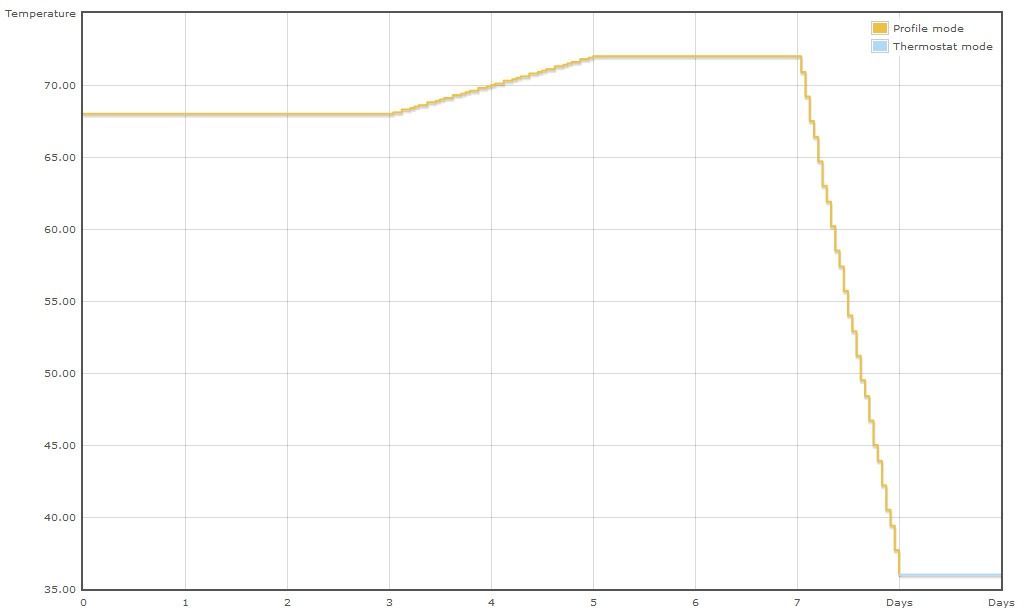soccerguy83
Well-Known Member
I have heard about raising the temp as fermentation progresses to allow the yeast to "clean up", but I'm not sure how to go about this.
I brewed my first beer, NB Caribou Slobber 31Jan2015 with a SG of 1.043. I pitched RVA Yeast labs RVA103 "Pacman" at 69F. The temp range for this yeast is 62-72F. I have been fermenting in a chamber at 65F. Since Monday (9 days into fermentation) I have been raising the temp by 0.2C (stc-1000) and am currently at 66F. I had planned on raising until I hit the upper limit of the range for my yeast about in time to cold crash.
Is this the proper way to do this?
I brewed my first beer, NB Caribou Slobber 31Jan2015 with a SG of 1.043. I pitched RVA Yeast labs RVA103 "Pacman" at 69F. The temp range for this yeast is 62-72F. I have been fermenting in a chamber at 65F. Since Monday (9 days into fermentation) I have been raising the temp by 0.2C (stc-1000) and am currently at 66F. I had planned on raising until I hit the upper limit of the range for my yeast about in time to cold crash.
Is this the proper way to do this?



